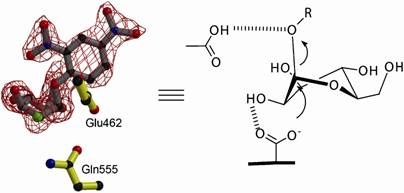“Historical landmark of chemistry”
On the occasion of their anniversary of “75 years of oxo synthesis”, Oxea and the Association of German Chemists (GDCh) recognized the pioneering work of Dr. Otto Roelen in the field of Hydroformylation (oxo synthesis). The commemorative plaque displaying the words “Historical Landmark of Chemistry” was ceremoniously unveiled by the vice president of the GDCh, Prof. Dr. Michael Dröscher, at Oxea’s Ruhrchemie plant together with more than 100 guests from the industry, business and politics.
With this program, the GDCh honors achievements in chemistry of historical importance. As memorial sites, the places of work of those scientists involved are distinguished. “The discovery of the oxo synthesis by Roelen in 1938 was pioneering for the metal-organic chemicals industry and the application of homogenous catalysis on an industrial scale”, said Dr. Martina Flöel, spokeswoman for the executive board at Oxea.
In addition, the Fischer-Tropsch process, which was first used industrially by Roelen at the Ruhrchemie plant, and the large-scale manufacturing of high-molecular-weight polyethylene according to the method developed by Karl Ziegler were recognized.
Topics
Organizations
Other news from the department business & finance

Get the chemical industry in your inbox
By submitting this form you agree that LUMITOS AG will send you the newsletter(s) selected above by email. Your data will not be passed on to third parties. Your data will be stored and processed in accordance with our data protection regulations. LUMITOS may contact you by email for the purpose of advertising or market and opinion surveys. You can revoke your consent at any time without giving reasons to LUMITOS AG, Ernst-Augustin-Str. 2, 12489 Berlin, Germany or by e-mail at revoke@lumitos.com with effect for the future. In addition, each email contains a link to unsubscribe from the corresponding newsletter.
Most read news
More news from our other portals
See the theme worlds for related content
Topic world Synthesis
Chemical synthesis is at the heart of modern chemistry and enables the targeted production of molecules with specific properties. By combining starting materials in defined reaction conditions, chemists can create a wide range of compounds, from simple molecules to complex active ingredients.

Topic world Synthesis
Chemical synthesis is at the heart of modern chemistry and enables the targeted production of molecules with specific properties. By combining starting materials in defined reaction conditions, chemists can create a wide range of compounds, from simple molecules to complex active ingredients.
Last viewed contents

ARODO GmbH - Buchholz, Germany
Air Products Announces North America Price Increase for Liquid and Bulk Helium Gases

Northey Technologies Ltd - , Poole, Dorset, United Kingdom

PacificGenuity, Inc. - San Carlos, USA

Friedrich H. Wolff GmbH & Co. KG - Hamburg, Germany

Merseburger Spezialchemikalien - Schkopau, Germany

























































